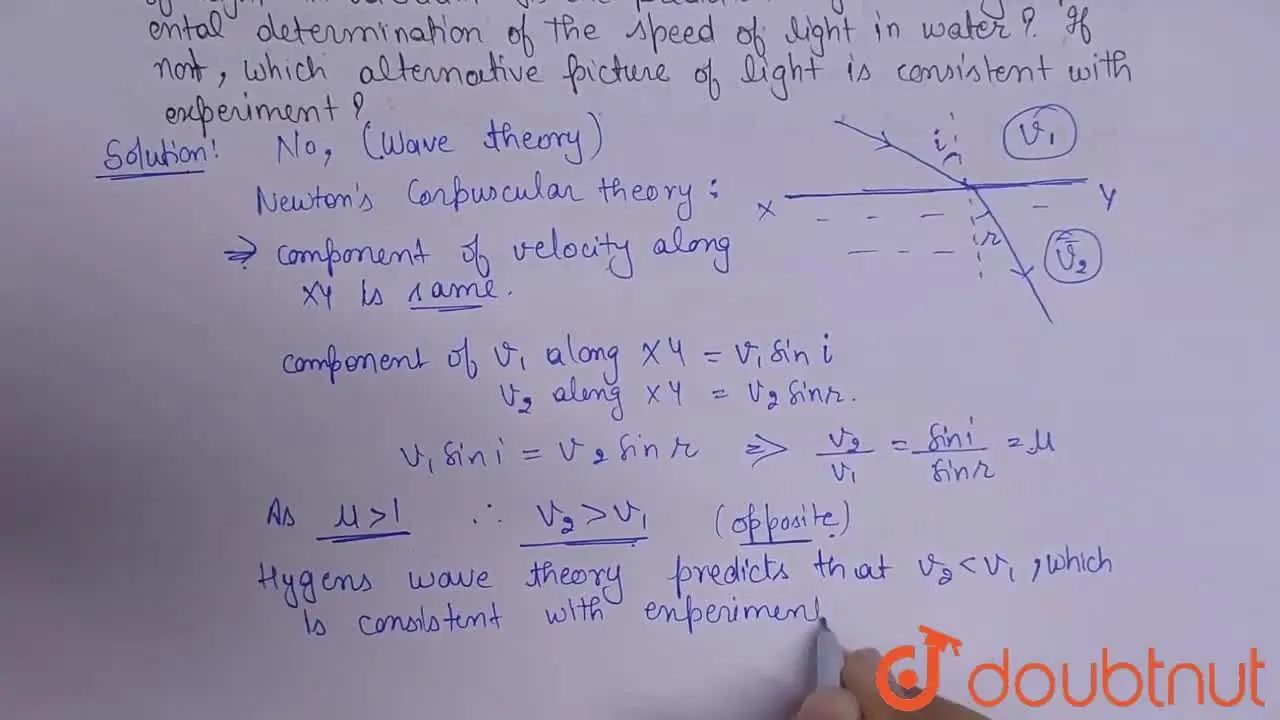Explain how Corpuscular theory predicts the speed of light in a medium, say, water, to be greater than the speed of light in vacuum. Is the prediction confirmed by experimental determination of the speed of light in water ? If not, which alternative picture of light is consistent with experiment?
Video Solution
Text Solution
No, Wave theory
Newton's corpuscular theory of light sates that when light corpuscles the interface of two media from a rarer (air) to denser (water ) medium, the particles experience forces of attraction to the surface. Hence, the normal component of velocity increases while the component along the surface reamins unchanged.
Hence, we can write the expression :
csini=vsinr....(i)
i = Angle of incidence
r= Angle of reflection
c= Velocity of light in air
v= Velocity of light in water
We have the relation for relative refractive index of water with respect to air as :
μ=vc
Hence, equation (i) reduces to
vc=sinisinr=μ ....(ii)
But μ>1
Hence, it can be inferred from equation (ii) v>c. This is not possible since this prediction is opposite to the experimental results of c>v
The wave picture of light is conistent with the experimental results.
|
Updated on:21/07/2023
Related Playlists
Similar Questions
The speed of light in vacuum is equal to
View SolutionCorpuscular theory of light predicts speed of light to be
View SolutionThe speed of light in vacuum is 3×108ms−1
View SolutionThe ratio of the speed of light in air to the speed of light in another medium
View SolutionThe speed of light in an isotropic medium depends on
View SolutionThe ratio of the speed of the electrons in the ground state of hydrogen to the speed of light in vacuum is
View SolutionThe ratio of the speed of the electrons in the ground state of hydrogen to the speed of light in vacuum is
View SolutionCalculate the speed of light in a medium whose critical angle is 30∘.
View SolutionIf the speed of light in air is 3×108 m/s, and the refractive index of water is 1.33, find the speed of light in water.
View SolutionThe refractive index of water is 4/3. The speed of light in water is
View Solution


